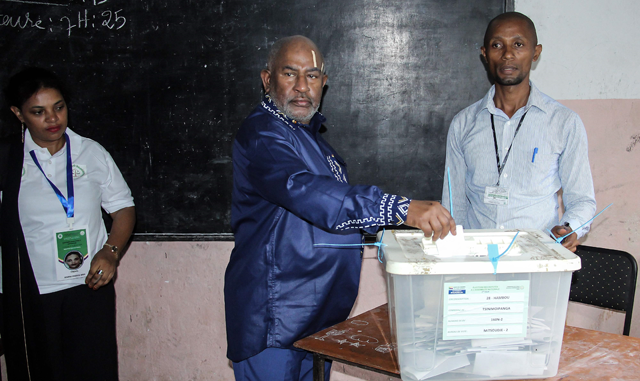
Comoros conducted a parliamentary election on Sunday to fill 33 seats in its legislature, despite several opposition figures vowing to boycott the process. They allege that President Azali Assoumani’s administration has adopted an increasingly authoritarian approach and that the electoral environment is compromised. The national electoral commission reported that approximately 330,000 people out of the archipelago’s total population of 850,000 registered to cast their ballots. Official results are expected next week.
President Assoumani, 66, cast his vote in Mitsoudjé on Grande Comore, the largest of the three islands. His Convention for the Renewal of the Comoros party, which secured 20 of the 24 contested legislative seats in 2020, remains confident of maintaining a robust presence in parliament. Opposition leaders, however, insist that low voter turnout will demonstrate widespread disillusionment with the political process. Prominent opposition groups, including the Juwa Party led by former President Ahmed Abdallah Sambi, continued their boycott after also refusing to participate in the 2020 elections.
Since gaining independence from France in 1975, Comoros has experienced numerous coups, reflecting a history of instability. Assoumani, a former military officer, first seized power in 1999 and has since governed intermittently, returning to the presidency in 2016. In 2018, he pushed through constitutional changes enabling him to bypass previous term limits and disregard a political agreement that rotated the presidency among the nation’s islands.
On Sunday, officials confirmed that voting proceeded despite the threat of Tropical Cyclone Dikeledi. Some observers fear that deepened political polarization, paired with concerns over the legitimacy of the ballot, could further complicate efforts to achieve enduring stability on the archipelago.
